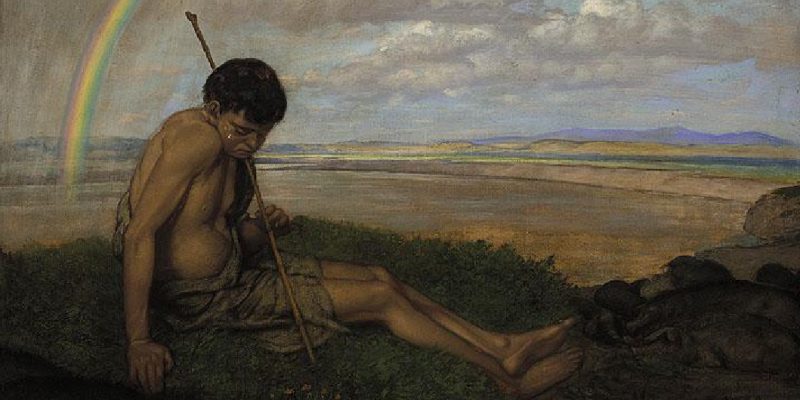Remorse and Repentance on the Path to Liberation
“A certain author said that one ought to feel joy with the work, yes, I am in agreement with feeling joy with the work, above all when one eliminates the inhuman elements. But in the process of the elimination of our errors, the work on oneself is not joyful, it is very painful. First of all, it is about there being a true intimate repentance for the errors committed, and there is a lot of pain in that.”
~ Samael Aun Weor
In his teachings, Samael Aun Weor has mentioned the need to repent as a way of receiving a lot of help from our inner Being and spiritual masters. The act of repentance is also at the foundations of many other spiritual teachings, especially those of the esoteric kind. This act, when true, is not a mechanical way of nature, nor is it something that we can do as part of a religious protocol, but rather it needs to come from deep within us. A true repentance emerges from our essence and manifests as a profound understanding of the situation with which we have a karmic entanglement.
In Samael’s book The Pistis Sophia Unveiled (which consists of his commentary on the passages of an ancient early-Christian Gnostic text called Pistis Sophia), we can see the process that Pistis Sophia (the spiritual essence of each one of us) had to go through once it has fallen into materiality and her way on reaching back up to spiritual heights. In order to ascend, it had to repent many times before it was finally admitted to the light, and each of those repentances corresponds to various states of Being and dimensions of nature.
Another state that may come before repentance itself, is remorse. The latter is a state that also comes from deep within, an understanding that our actions went contrary to the divine law and our inner Being. It is when we see deeply the harm that we have done to our fellow human. In his lecture The Harvest of the Sun, Samael Aun Weor talks even more about remorse:
“There are people that no longer feel remorse for anything. But, what is remorse? When the Being, when the superior parts of the Being are put face to face before the Sacred Absolute Sun, they see the reality and if their inferior parts march on the mistaken path, then remorse arises in the Being; this remorse of the Being is transmitted to the personality. But when someone can no longer feel remorse for anything, it is a sign that one has definitively moved further away from the Being, because only the Being can feel remorse. And if one is no longer able to feel remorse one is very far from the Being, from one’s own Being and from the different parts of the Being, because the Being has different autonomous and self-conscious parts.”
~ Samael Aun Weor
Sometimes remorse is mistaken for regret. The two are different in that the former is a state that comes from the spiritual part of us, whereas the latter comes from our animalistic side (the subconscious mind). When we examine regret more closely, we can see that it is a mechanical, repetitive program that is often accompanied by a mental state and (especially) a heavy and drowning emotion. When we are in such a state, we may be sorry, but the subconscious manifestations are blocking us from seeing clearly and from reaching an understanding that’s more in tune with reality. And it is also not seldom that we may regret something for our own sake, and not because we are sorry for the harm we’ve done.
A remorse, on the other hand, is an instantaneous realization that emerged from deep within our essence and is giving us clarity and understanding. Although it is not always needed to experience remorse in order to arrive to repentance, it usually does precede it.
As we work on ourselves, transforming our animalistic side by eliminating the egos and expanding the consciousness, the ability to feel remorse is much higher, and when we do something harmful, we usually tend to feel that remorse as soon as we get sufficiently cleared of the ego. The ability to feel that conscious remorse that comes with an understanding, is a good sign of progress.
A repentance can take more time and effort to come about. In my opinion, it is not something that we consciously provoke by working on that particular thing, but rather it comes from our overall effort with the inner work. The more consciousness we have freed from the egos, the higher is the ability to feel a spontaneous repentance. We may, for instance, feel such repentance in the meditation on the ego practice (and especially so if we went deep into such meditation). We can also experience the moments of repentance spontaneously during various activities of daily life. Its manifestation will always depend on how far we are on the Path, and how much consciousness we have.
Repentance creates a wave of vibration that affects our Being and reverberates in infinity. Another wave is in turn launched from the spiritual dimensions towards us, pushing us further along the Path and strengthening our efforts to ascend to new milestones.
HDP, October 2022.


Leave a Reply